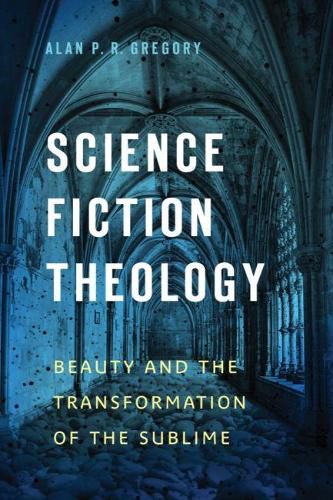Readings Newsletter
Become a Readings Member to make your shopping experience even easier.
Sign in or sign up for free!
You’re not far away from qualifying for FREE standard shipping within Australia
You’ve qualified for FREE standard shipping within Australia
The cart is loading…






Science fiction imagines a universe teeming with life and thrilling possibility, but also hidden and hideous dangers. Christian theology, often a polemical target for science fiction, reflects on the plenitude out of which and for which the universe exists. In Science Fiction Theology, Alan Gregory investigates the troubled relationship between science fiction and Christianity and, in particular, how both have laid claim to the modern idea of sublimity.
To the extent that science fiction has appropriated - and reveled - in the sublime, it has persisted in a sometimes explicit, sometimes subterranean, relationship with Christian theology. From its seventeenth-century beginnings, the sublime, with its representations of immensity, has informed the imagining of God. When science fiction critiques or reinvents religion, its writers have engaged in a literary guerrilla war with Christianity over what is truly sublime and divine.
Gregory examines the sublime and its implicit theologies as they appear in early American pulp science fiction, the horror writing of H. P. Lovecraft, science fiction narratives of evolution and apocalypse, and the work of Philip K. Dick. Ironically, science fiction’s tussle with Christianity hides the extent to which the sublime, especially in popular culture, serves to distort the classical Christian understanding of God, secularizing that God and rendering God’s transcendence finite. But by turning from the sublime to a consideration of the beautiful, Gregory shows that both Christian and science-fictional imaginations may discover a new and surprising conversation.
$9.00 standard shipping within Australia
FREE standard shipping within Australia for orders over $100.00
Express & International shipping calculated at checkout
Science fiction imagines a universe teeming with life and thrilling possibility, but also hidden and hideous dangers. Christian theology, often a polemical target for science fiction, reflects on the plenitude out of which and for which the universe exists. In Science Fiction Theology, Alan Gregory investigates the troubled relationship between science fiction and Christianity and, in particular, how both have laid claim to the modern idea of sublimity.
To the extent that science fiction has appropriated - and reveled - in the sublime, it has persisted in a sometimes explicit, sometimes subterranean, relationship with Christian theology. From its seventeenth-century beginnings, the sublime, with its representations of immensity, has informed the imagining of God. When science fiction critiques or reinvents religion, its writers have engaged in a literary guerrilla war with Christianity over what is truly sublime and divine.
Gregory examines the sublime and its implicit theologies as they appear in early American pulp science fiction, the horror writing of H. P. Lovecraft, science fiction narratives of evolution and apocalypse, and the work of Philip K. Dick. Ironically, science fiction’s tussle with Christianity hides the extent to which the sublime, especially in popular culture, serves to distort the classical Christian understanding of God, secularizing that God and rendering God’s transcendence finite. But by turning from the sublime to a consideration of the beautiful, Gregory shows that both Christian and science-fictional imaginations may discover a new and surprising conversation.